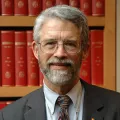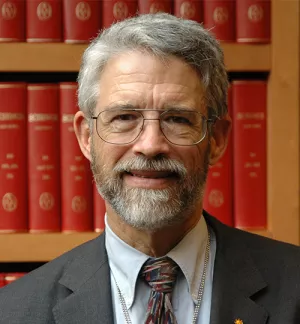Remarks by John P. Holdren preceding Vice President Gore at a press conference on climate data for the first half of 1998, Roosevelt Room, the White House, 14 July 1998. Holdren was preceded by Dr. James Baker, Director of the National Oceanographic and Atmospheric Administration.
Thank you, Jim.
Mr. Vice President, ladies and gentlemen:
The evidence is growing stronger every day that major changes in Earth's climate are underway; that these are being caused mainly by emissions of greenhouse gases from fossil-fuel consumption and land-use changes; and that the consequences for human well-being are going to be overwhelmingly negative: more heat waves, more floods, more storm damage, higher sea level...and probably more droughts, more wildfires, more disease, and reduced productivity of farming, forestry, and fisheries in many parts of the world.
Of course some uncertainties remain about the details, but the picture of what we are doing to climate is clear enough -- and the likely consequences of delay in taking remedial action are so costly -- that action is justified now. And preparations need to be made for taking further action if the problem continues to unfold in the way current knowledge indicates it will.
The task of providing the energy our country and the world will need, while keeping climatic disruption from fossil-fuel use within tolerable bounds, is likely to be the biggest technical and environmental challenge of the 21st century. The President's Committee of Advisors on Science Technology, in a letter to the President in December 1996, put this problem first on a list of science-and-technology-policy priorities for the second Clinton-Gore term.
But as the President and Vice President have repeatedly emphasized, this situation presents not just a challenge but an opportunity. Some of the measures that can be taken to reduce greenhouse-gas emissions will more than pay for themselves through side benefits such as increased fuel efficiency, improved air quality, and reduced oil imports. Other measures will be amply repaid in the longer run in the form of climate-change damages that are avoided. And companies that innovate in the development of technologies that reduce emissions at lower costs will earn big returns.
As a scientist and an analyst of the role of science in public policy, I am appalled at the way some members of Congress have made this issue into a focus of partisan Administration-bashing, trying to sabotage even the most modest constructive actions -- such as increased R&D on low-emission energy technologies -- and even trying recently to prevent the Administration from so much as discussing what is known about the climate-change problem.
This should not be a partisan issue. President George Bush, after all, went to the Rio Conference on Environment and Development in 1992 and signed the UN Framework Convention on Climate Change, which in turn was ratified by the U.S. Senate in October 1992.
This existing climate treaty -- which, having been ratified, is the "law of the land" as well as international law -- calls upon the United States and the other 173 parties to formulate and implement programs to mitigate greenhouse- gas-induced climate change. It also calls for research, public communication, and international cooperation on climate change and the control of greenhouse- gas emissions. So the idea that the Administration needs to wait for ratification of the 1997 Kyoto Protocol before doing any of these things is preposterous.
But that is enough from me -- maybe more than enough. It's now my privilege and pleasure to turn over the floor to a remarkable individual who knows almost as much about the science of climate-change and climate-change impacts as the scientists who spend full-time studying these things, and who knows a great deal more than we scientists do about the politics of the problem. I refer of course to the Honorable Al Gore, who has been a perceptive student of human-induced climate disruption and an eloquent advocate of policies to address it since long before he became the Vice President. I give you, without further ado but with the greatest respect and admiration, the Vice President of the United States.
Holdren, John. “Remarks at a White House press conference on climate change.” July 14, 1998


